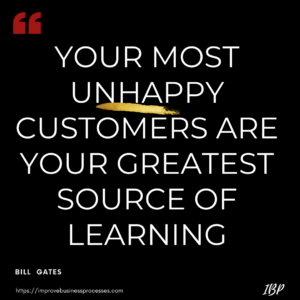Ever wonder how to scale in business? Scaling a business is like moving from riding a bicycle to driving a car. It takes preparation, strategy, and systems to handle the new pace. Here are some surefire ways to make it happen:
What does Scaling in Business Mean?

Scaling in business means growing your company without overstretching resources or sacrificing quality. It’s about increasing revenue and output efficiently, using systems, processes, and strategies that can handle higher demand.
Unlike just expanding, scaling ensures your operations remain sustainable and profitable as you grow. Whether it’s automating tasks, hiring strategically, or focusing on top-performing products, scaling helps you handle more business without the chaos or burnout.
Strengthen Your Foundations
What is scaling in business? Without solid business foundations, it is like building a house on quicksand! It is only a matter of time before it sinks! Start by clarifying your vision and goals. What does success look like at scale? Can your business handle growth? Ask yourself:
- Do I have a clear business plan or none at all! Are there policies, and procedures in place? Or, do I have a business plan I have not looked at since it was written?
- Are my current systems efficient, or am I patching leaks as I go? Are they helping or holding me back?
This might mean streamlining operations, adopting automation, or clarifying roles. Growth will magnify weaknesses, so patch the cracks before scaling.
If your team is constantly reinventing the wheel, you are overdue for some serious process documentation. Create policies and procedures for key tasks, from onboarding customers to managing inventory. These are your “business blueprints,” ensuring consistency as you grow.
Next, tackle inefficiencies. Are you wasting hours on manual tasks that tech could automate? Do overlapping systems create confusion? Streamlining now saves headaches later.
Lastly, review your finances. Is your cash flow stable? Can you handle growth-related expenses without overextending? Strengthening your foundation isn’t glamorous, but it’s the secret sauce to sustainable scaling. Skip it, and you’re inviting chaos.

Focus on Profitable Products or Services
When scaling, not everything you sell, or service you provide deserves a front-row seat. Identify your profit powerhouses—the products or services that drive most of your revenue with the least effort.
You’ve probably heard of the 80/20 rule: 80% of your income often comes from 20% of your offerings. Lean into that sweet spot by doubling down on what’s working and cut the fluff.
Start by analyzing your sales data. What’s selling like hotcakes? Which offerings have the highest margins? Now, think about scalability. If a service is labor-intensive or heavily reliant on you, it’s probably not the best candidate for growth without some retooling.
Next, phase out or tweak underperformers. Pouring resources into products that barely move the needle is like filling a leaky bucket. Instead, double down on what works and consider upsells or variations to maximize ROI.
Focusing on the winners simplifies your business, increases profits, and sets you up for smooth scaling. Don’t spread yourself too thin!
Document and Delegate
Scaling a business means letting go of the “if I don’t personally do it, it won’t get done right” mentality. Trust me, it’s a hard pill to swallow, but a necessary one at that. The first step? Document everything.
Create simple, clear standard operating procedures (SOPs) for your core tasks—from onboarding clients, processing orders, or responding to complaints.
Why? Because winging it doesn’t scale. With well-documented processes, anyone on your team can step in and get things done the way you want them done.
Once your playbook is set, it’s time to delegate responsibilities to trusted team members. Start small by handing off tasks you don’t need to touch, like data entry or routine admin work. Train your team and trust them—don’t hover like a helicopter boss.
Delegating frees you up to focus on big-picture growth strategies. Remember, scaling isn’t about doing more yourself; it’s about building a team that can multiply your efforts.

Invest in Technology
Tech is your best friend for scalability. Tools like CRM systems, accounting software, or inventory management platforms can help you handle growth without dropping the ball. Bonus points go toautomation. Why? Because robots don’t call in sick!
Build a Rockstar Team
Scaling a business takes more than hustle and is not a solo act. It takes a rockstar team ready to grow with you. Start by hiring people who are not just skilled, but also share your vision. Skills can be taught, but passion and alignment? That’s gold.
Invest in training, too. A well-trained employee isn’t just efficient—they’re confident and ready to take ownership. Train them well, and don’t skimp on leadership development because this is cheaper than cleaning up bad management down the road!
But here’s the secret sauce: not every role needs a full-time hire. For specialized tasks or short-term projects, outsourcing or hiring freelancers can save time and money.
Platforms like Upwork or Fiverr connect you with pros for everything from marketing campaigns to bookkeeping. Freelancers bring flexibility and expertise without the long-term commitment, letting you scale smartly and strategically.
A Note of Caution on How to Scale in Business
This cautionary note refers to engaging freelancers. To do so efficiently requires techniques that help you properly sift through the weeds to find that freelancer who truely meets your requirements. That in itself is a whole lot of work and may small business owners know this!
If not done properly, your efforts could result in your hiring a liability instead of an asset! Better to stick with a company like BCINC who you know has the experience and can be trusted to get the job done right every time!
Finally, set your team up for success with clear goals and regular feedback. Celebrate wins, big or small, to keep morale high. A motivated team will not only work harder but also create a culture that attracts more top talent. That’s how you scale without losing your mind!
Focus on Customer Experience
Scaling does not mean skimping on customer care. If anything, it’s when your customer experience game needs to be at its strongest. Happy customers are not just loyal—they’re walking, talking endorsements for your business.

Start by keeping things personal. Use CRM tools to track customer preferences, purchases, and interactions so your team can deliver that “how do they remember me?” kind of service. Streamline support with chatbots for quick fixes, but always leave room for real human connections when it matters.
Feedback is your growth compass. Send out surveys, monitor reviews, and actually listen to what your customers are saying. Then act on it.
And don’t forget the magic of small touches—thank-you notes, loyalty discounts, or surprise perks can turn casual buyers into raving fans.
Scaling will test your systems, but if your customers feel cared for, they will stick with you—and bring friends along for the ride.
As you scale, your customers need to feel the love. Prioritize excellent service and gather feedback regularly. Loyal customers are gold, especially when growth puts pressure on your systems.
Expand Strategically
Do not seek to grow just for the sake of it! Research new markets, customer segments, or product lines carefully. Test the waters before diving in. Nobody wants a cannonball thrown into shallow water. BCINC can assist you with these time intensive activities.
Secure Financing
Scaling often requires upfront capital, whether it’s for hiring, inventory, or marketing. Explore your options—loans, investors, or even grants—and make sure your financial model can handle the payback. Seek assistance from BCINC to get this done right!
Track Key Metrics
You cannot manage what you don’t measure. Keep an eye on metrics like:
- Customer acquisition cost (CAC)
- Lifetime value (LTV)
- Profit margins
- Employee productivity
Growth without profitability is just a fancy way to go broke! Seek assistance from BCINC to get this done right!
Be Ready for Surprises by Staying Adaptable
Growth brings surprises, and not all of them are good. Be ready to pivot, troubleshoot, and problem-solve on the fly. Flexibility can be your greatest strength when the unexpected happens.
Conclusion – How to Scale in Business
Scaling is a marathon, not a sprint. It requires planning, execution, and a healthy dose of grit. But with the right approach, you can turn your small business into a thriving, scalable enterprise.
Related Articles
- Why Create a Business Plan? How This Helps Growth
- Why is Customer Satisfaction So Important? It Drives Growth
- 6 Reasons Why A RACI Analysis In Your Business Helps Growth
FAQs for How to Scale in Business
How long does it take to scale a business?
It depends on your industry, goals, and resources. Some businesses scale in months; others take years. The key is to move at a pace that won’t compromise quality.
Can a business scale without funding?
Absolutely, but it might take longer. You’ll need to reinvest profits strategically, prioritize high-return areas, and keep overhead low.
What’s the biggest mistake when scaling?
Growing too fast without systems to support it. It’s like building a skyscraper on a foundation meant for a shed—it’s bound to collapse.
References
Watterson B (2024) Forbes Business Council Post https://www.forbes.com/councils/forbesbusinesscouncil/2024/03/01/best-practices-for-scaling-your-business/
Indeed Editorial Team (2024) How To Scale a Business for Sustainable Growth in 7 Steps https://www.indeed.com/career-advice/career-development/how-to-scale-a-business

